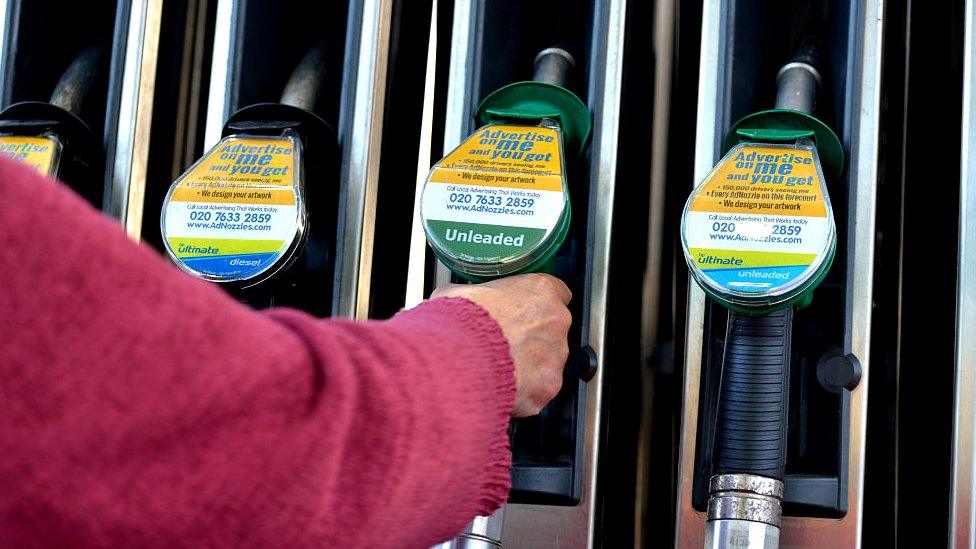Fuel costs: The drivers living with the UK's highest prices
- Published
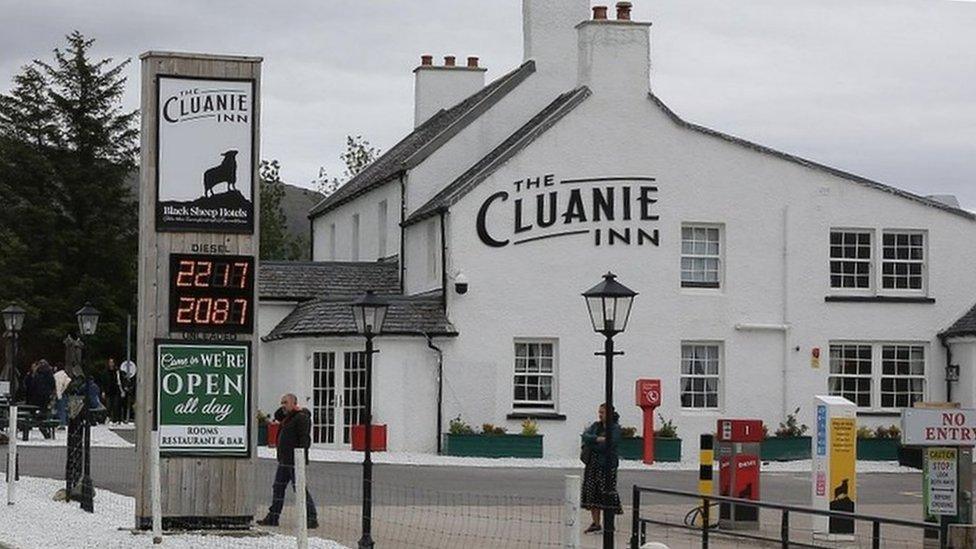
Prices for petrol and diesel has exceed £2 in parts of the Highlands, but operators said there were various factors behind the costs
People living in the Highlands have long been used to higher fuel prices, even before the recent rapid rise in costs.
The RAC estimates that the average price for a litre of petrol in the UK has increased to 182.31p and 188.05p for diesel, the fuel of choice for many in the region.
But in many parts of the Highlands, petrol now costs just a few pennies short of £2. And at one filling station at Cluanie in Glen Shiel, it costs 208.7p for petrol and 221.7p for diesel.
Operators said various factors - including higher supplier costs - had pushed up the costs.
The AA says prices have historically been high in the Highlands because smaller stations sell very low volumes of fuel, so recouping their costs is much harder.
Many of these sites survived because local people know if they did not use them, they would be forced to close.
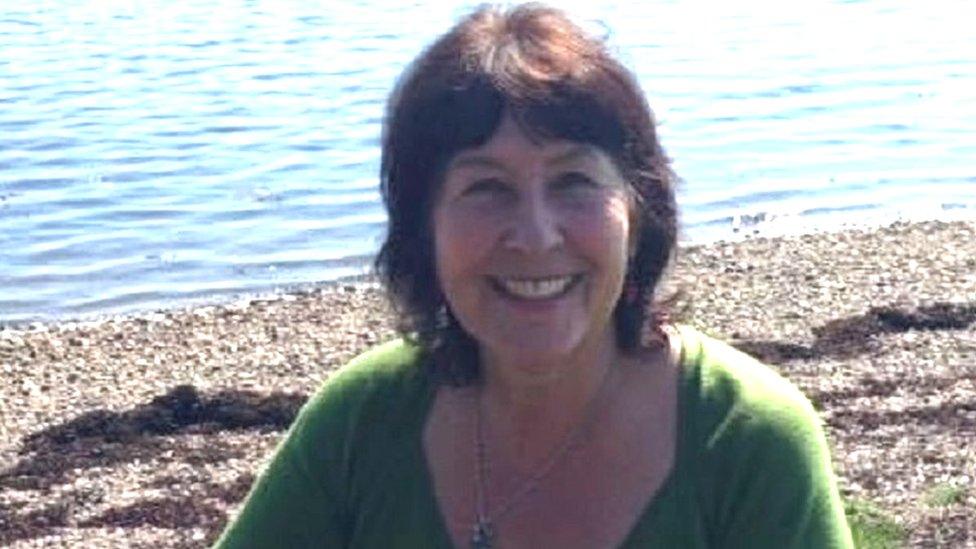
Highland councillor Margaret Paterson has concerns for families and older people
Margaret Paterson worries the impact of the soaring prices goes beyond a financial burden.
"Some parts of the Highlands have always suffered from high prices due to their rurality," said the Highland councillor, and grandmother of 17.
"But this is a new hardship, and it is being felt worst in the rural areas because of the distance from shops and other services, and the lack of public transport.
"For some people, their car is a lifesaver."
The Dingwall-based councillor fears older people, particularly those who live alone, will be among those hardest hit.
She said: "I was speaking to a gentleman in the shops yesterday and he said he looks forward to coming into town because for him it is a day out. He can see and chat to people while getting his messages.
"But he was worried he will have to give up his car because he won't be able to afford to run it.
"People are not going to just struggle financially, this is going to have an effect on their wellbeing.
"For the older generation separated from families during the Covid pandemic, they now face not being able to see children and grandchildren because they cannot afford to travel."
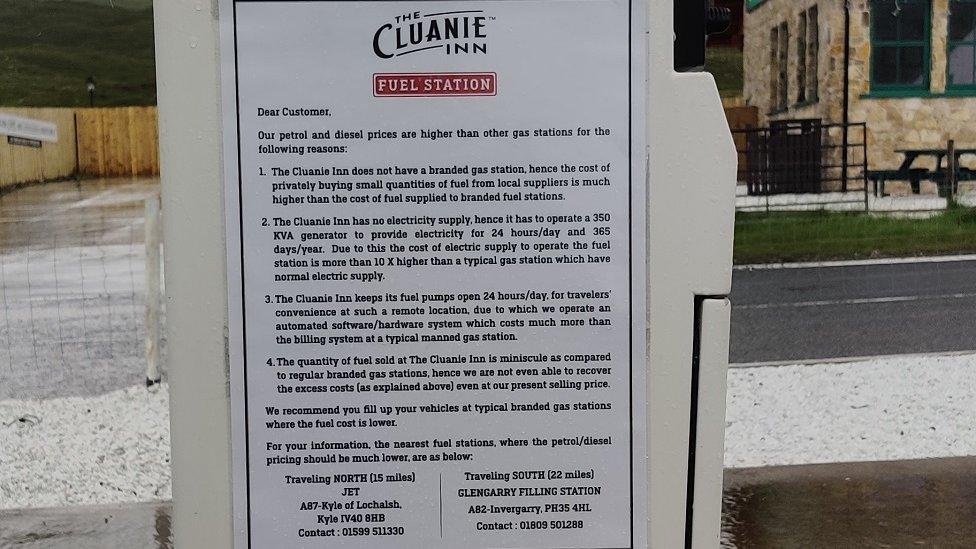
The owners of pumps at the Cluanie Inn have a poster advising customers where they can get lower-priced fuel
Black Sheep Hotels, owners of the Cluanie Inn and its fuel pumps, said there were a number of reasons behind the cost of its petrol and diesel.
It said it had to buy its fuel from independent suppliers at much higher rates than branded filling stations and, because there was no main power supply at the site, had to run a generator for electricity 24 hours a day. There were also costs around the software and hardware for the automated pumps.
Black Sheep said it had a poster at the pumps advising customers how far away lower-priced fuel was available. It added that it had a plan to close the pumps because they were loss-making, but had kept them open following appeals from customers.
Pete Malone runs a small petrol station as part of Bettyhill General Merchants in Bettyhill on the north Highland coast. His prices are 184.5p for petrol and 196p for diesel.
It is one of three or four filling stations on a stretch between Thurso and Durness - a two-hour, 71 miles (114km) journey by road.
Pete told BBC Radio Scotland's Lunchtime Live programme that they had been used to having relatively high prices for many years.
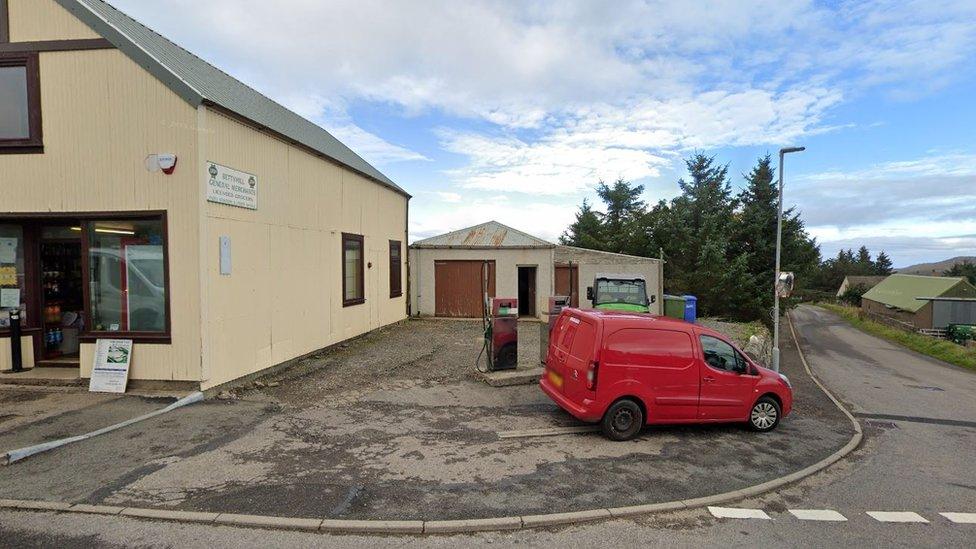
Bettyhill General Merchants has a small petrol station
"We are a small petrol station and we have taken the view that we need to support our local community so we are running on as low a margin as can possibly get by on," he said.
"We are hampered slightly by the fact there aren't many people who will deliver fuel as far north as we are, but we can set the price we want."
And he added: "If you look at the people who rely on petrol and diesel in the area, it's the school bus, it's the NHS care workers, it's the doctor, it's the fire engine and the ambulance. The are all going to have to pay higher costs."
Fuel forms an important part of Laura Moon's work as a tour guide with her husband Ian Deveney.
Based in Inverness, they have been in business for five years and take small private groups all over Scotland and northern England.
They have a small fleet of cars, which all run on diesel.
She said: "We often do what we call multiday tours. This is where we pick up from the airports of Edinburgh and Glasgow then over several days we take our guests anywhere from Hadrian's Wall to the Orkney Islands - and everywhere in-between."
Laura said higher fuel prices started to bite around February.

Tour guides Laura and Ian said rising costs were a huge concern

"It's a shock when you're at the pump and you are aware the tank isn't full and the digits are still going up," she said.
The weekly fuel bill for their three vehicles is now in the region of £500 per car.
Laura said the costs were a huge concern.
"With the two years of the pandemic many in our industry hadn't earned a penny until about March 2022," she said.
"Tourism is booming again but - like many - we held our 2019 prices for people that postponed rather than cancelled their bookings.
"Those were all priced at the fuel prices from 2019. In a year when everyone needs help to get back onto their feet we are struggling with a much-reduced profit margin."
Nyomi Dixon runs the Whisky Away cafe in Inverness and branched out into mobile catering in April, selling home-bakes and teas and coffees from a customised caravan.
She said higher prices were making that side of the business harder.
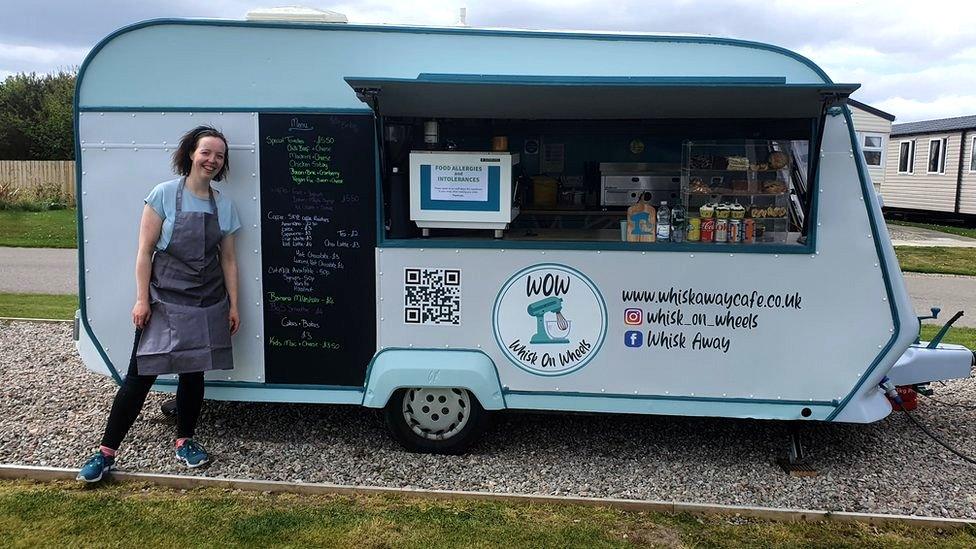
Cafe owner Nyomi Dixon worries how rising costs will impact on her new business
"Running the generator on petrol has increased from about £4 for three hours to now costing around £14," Nyomi said.
"Depending on how many days we trade obviously changes how much we spend weekly. Diesel to tow the caravan with our van has hiked up in the last three months."
She added: "I'm definitely worried the increase will continue to rise and what that may mean for our business in the future, but hopefully we have a great summer and then Whisk On Wheels can hibernate and hopefully fuel costs will be lower next year."
The haulage industry warned earlier this week that the cost of running just one lorry was up £20,000 on last year.
Lochaber-based self-employed haulier Sandy MacCallum fills his lorry's diesel tank two to three times a week.
At the end of last year it cost about £480 each visit, but the haulier said it was now up to £930.
Sandy, who hauls machinery, industrial equipment and logs, said he and others had long lived with higher Highland fuel prices.
"You just keep adjusting," he said. "In November the fuel prices really started to hit. Soon I was thinking: 'This isn't slowing down, this isn't going to stop'."

Self-employed lorry driver Sandy MacCallum worries that fuel costs will continue to rise
Sandy is now into his third year driving his own lorry. He had expected to be making money back by this stage, after losses in the first year and breaking even in the second.
"But the fuel costs mean I'm having to press the restart button," he said.
Sandy said rising costs were being felt right across his industry, and filtering through the wider economy.
He said: "The wee bit of money I have left at the end of the week to spend on what I want is now going on fuel."
Sandy added that he was now hoping that hauliers would stage protests to force a reduction in prices. He believes lorry drivers should join with other workers, including those in the NHS, to take action in the coming weeks.
"Either that or we are going to drive ourselves into the ground," he said.
- Published8 June 2022
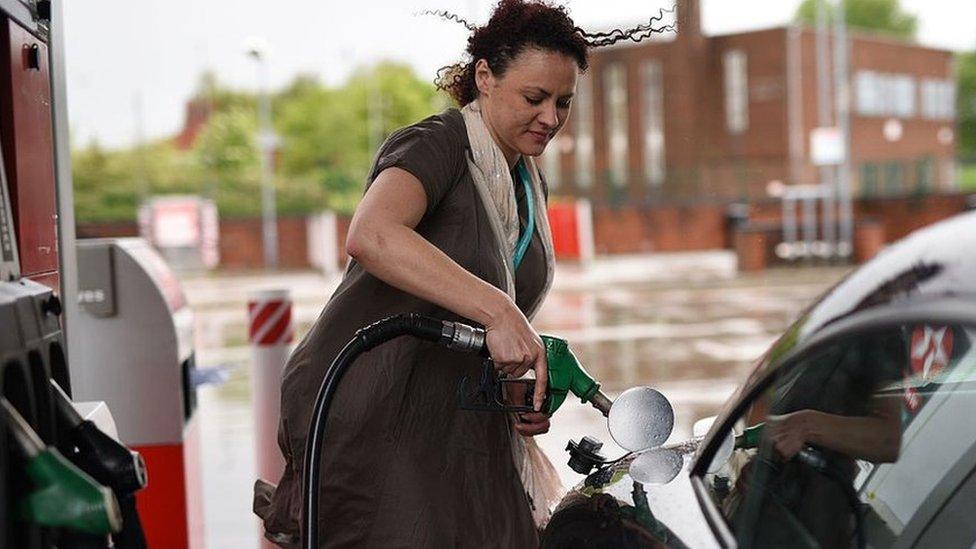
- Published14 August 2023
